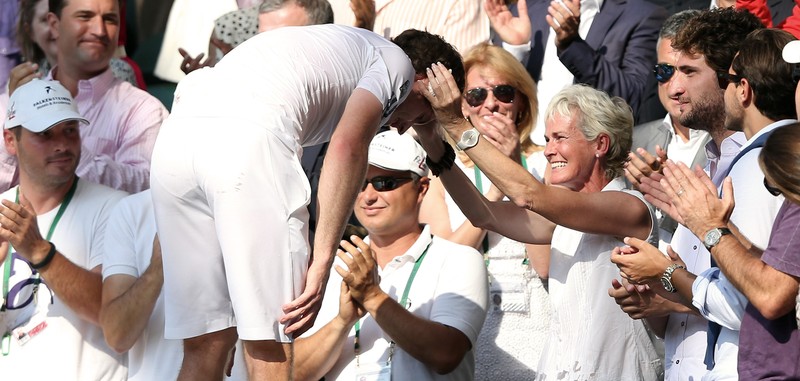
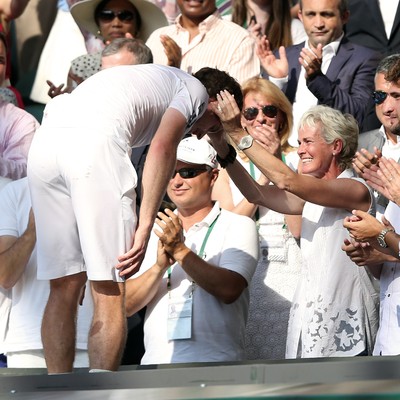
In Conversation With… Judy Murray
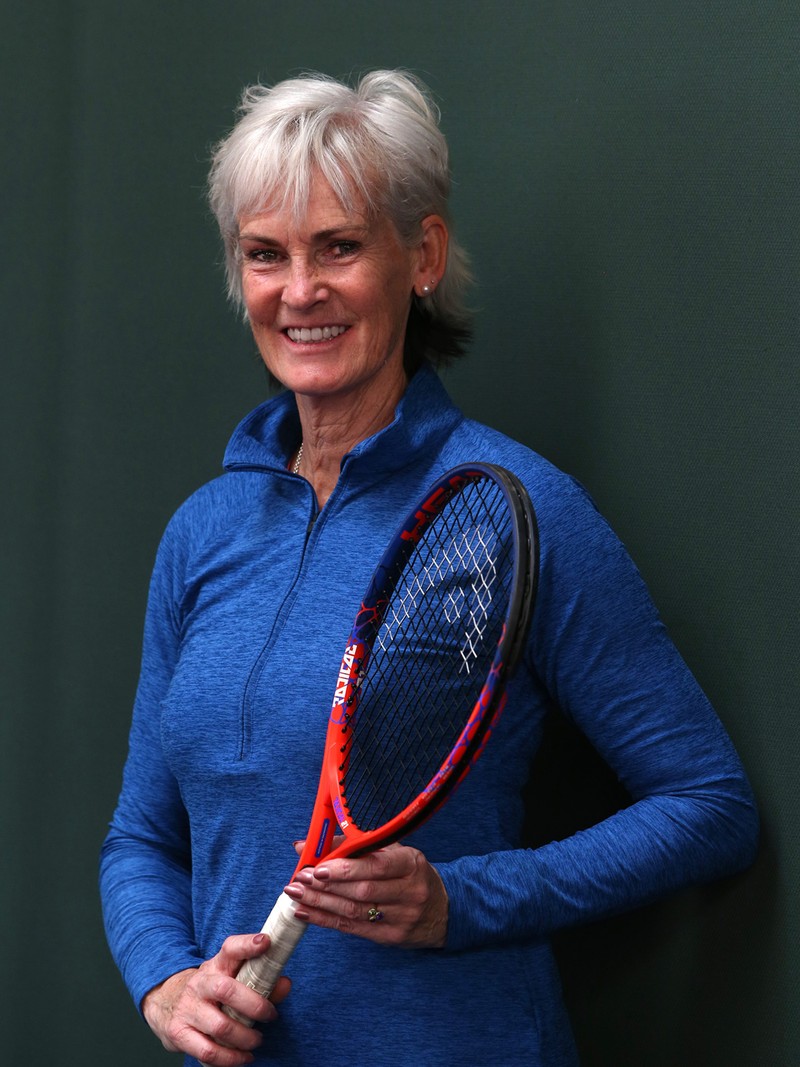
What role did sport play in your early life?
Both my parents played county-level badminton and tennis, and my father was actually a footballer for Stirling Albion in the 1950s. Funnily enough, they both switched over to golf later in life when tennis took more of a toll on their bodies! When I was 11, they sent me to a specific school that excelled at sport because they knew I would thrive there. I’ve always been grateful to them because there were so many sports and opportunities on offer there. I represented the school on lots of different teams – hockey, netball, swimming, tennis, badminton – and I was also part of community clubs in Dunblane. Safe to say, sport played a huge role in my life from a very early age.
What led you to tennis?
I started playing tennis when I was about 10, just with my mother and father – there was no such thing as tennis coaches back then, and you needed to be strong enough to hold one of those heavy wooden racquets! These days, kids can learn from about the age of four or five with a lighter racquet. So, I played with my parents and other children and largely taught myself. I ended up being good enough to play for Scotland, but you could say I learnt everything about the sport just by playing.
And how did you get into tennis coaching?
Quite by accident. I started volunteering at the local tennis club when Andy was about six months old just to give myself something to do. There still weren’t any real tennis coaches in our area, but because I’d been a good player, I was able to teach other children how to play. I didn’t really think about my own children playing tennis – they were so young, and it really wasn’t on my radar. But as more parents asked me to teach their children, the mothers agreed to look after Jamie and Andy in the clubhouse, and soon we built a real community of parents who wanted their children involved in tennis. The whole thing was very organic – in the end, I was pleased my children were interested in sport. I wanted them to get everything out of it that I had.
Are Jamie and Andy into golf?
Yes, they both are – Jamie’s maybe the slightly better player. But they’re on the road nine months of the year because of their tennis careers, so they don’t get that much time to play. Jamie actually had a handicap of three when he was 15 and was the junior champion at Dunblane Golf Club. He plays golf right-handed [even though he plays tennis left-handed] because we could only afford one set of sawn-off golf clubs back then!
What’s stopped you from getting into golf until now?
I’ve probably been too busy in other sports and, I suppose when I was younger, I wasn’t that interested in a game where the ball didn’t move that much! My brother is actually a golf pro – so hopefully he can give me some good tips to help me through the academy! These days I’m not massively interested in running round a tennis court and putting my body through that – golf suits me much better. It’s great exercise and it can be really sociable, too.
What do you think your tennis coaching career has taught you?
That you can only get better if you play with people who are older and can share their experience with you. It’s also about experimentation and finding your own rhythm. Taking up golf has reminded me of that all-important balance between putting the hours in and honing those skills yourself, so that they become natural. Over-coaching is a big problem in sport these days – there’s not enough playing of the game. And with individual sports like tennis or golf, you need think for yourself out there. If it’s not working, no one can fix it for you.
How are you going to ensure you get that right with golf?
Well, I’m playing a lot with a friend and a pro at Gleneagles. So, it’s sociable as well as informative. Learning something new when you’re older is hard because you don’t have as much space in your brain to retain lots of information. You’re also set in your ways – I admit, I’m quite stubborn. But I’m highly aware that simple is often better. I know I’m the sort of person who doesn’t respond to lots of instructions all at once, so I’m happy to listen to a single pro’s advice.
Does the ‘simple is best’ approach apply to tennis, too?
It’s never one size fits all and it’s highly unusual to see any player on the tennis tour with the same coach they’ve had since they were a child. In fact, it’s very rare. As a professional, you need different input at different stages of your career. Coaches tend to specialise in age ranges, levels or genders. Everyone needs something different from different people as they age. The personality fit has to be right too – that can be difficult to get right with younger players, because they essentially become the coach’s employer, which can be an odd dynamic.
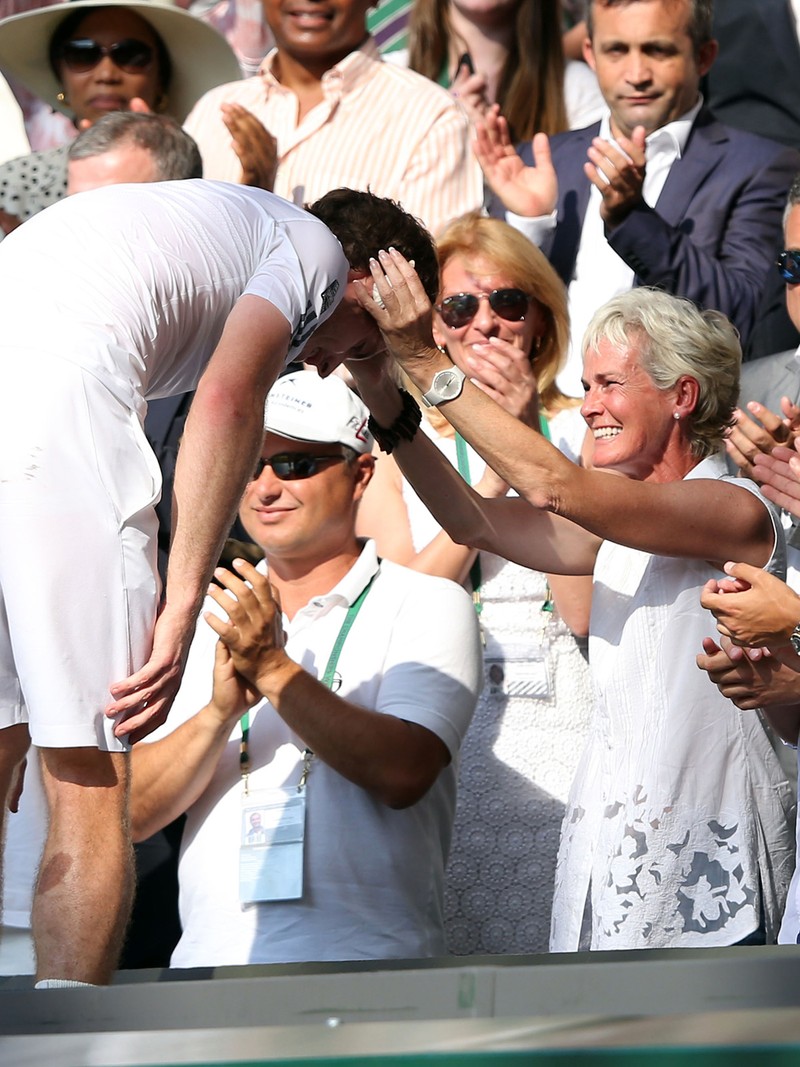
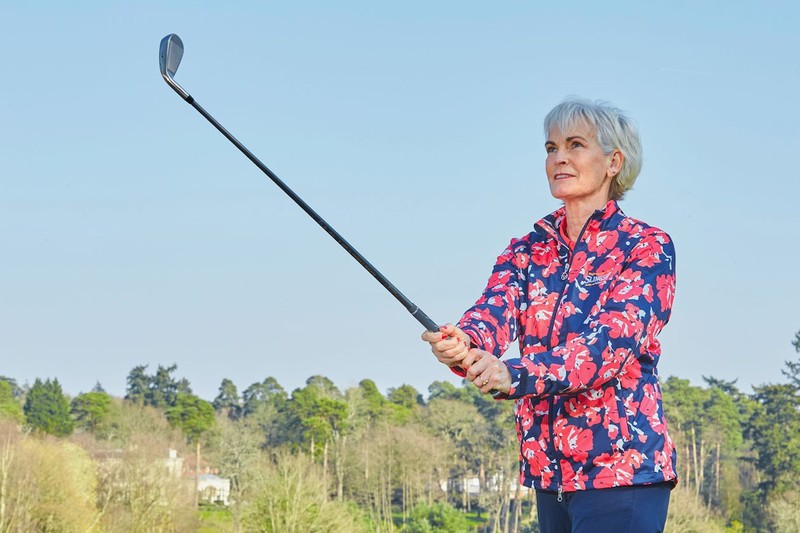
What are your thoughts on Wimbledon this year?
What people don’t always understand about Wimbledon is that it’s such a unique tournament. It used to be the case that three of the four Grand Slams were played on grass, now only one is. And the grass court season is so short. Very few countries have grass courts to practise on these days, so not many of the top players are comfortable on the surface. It plays so differently from clay or the hard courts. They’re forced to make a big adjustment between the May clay court season and moving to grass in June. That said, it’s a massive opportunity for up-and-coming players to claim big scalps. Many of them get in on wild cards and it’s a real chance to pick up ranking points and prize money that can sustain them throughout the rest of the year. It’s also the most wonderful showcase to encourage people to get into tennis – either as players or fans. I’m excited to see what Emma Raducanu does this year. She’s capable of doing well, I just hope the expectation doesn’t weigh too heavy on her…
Expectation – that must be something you’re all too familiar with…
Yes – if you’re a Brit, then tennis equals Wimbledon. It might be the biggest of all the Grand Slams, but people forget it’s only two weeks of a year-long tennis tour. Cam Norrie had a great year last year and he’s a very solid competitor, so with a favourable tour he could go a long way this year. I also really enjoy watching Iga Świątek and Denis Shapovalov – he’s another left-hander and I like his attitude. He’s a nice young man, a bit like Andrey Rublev, Jannik Sinner and Felix Auger Aliassime. I remember Felix stopping me on a bridge in Adelaide a few years ago – he was very polite and complimentary about Andy’s career, which meant a lot to me. It’s great to see Andy give back to the younger players where he can – he didn’t really have that when he was coming up.
Do you have thoughts on this year’s Wimbledon doubles?
The doubles crowds at the Grand Slams are like nothing else – the matches have such entertainment value. It’s just a shame they don’t get the same amount of television coverage as the singles. Jamie will be playing doubles at Wimbledon and Andy plans to play singles. If I’m honest, these days, I tend to just watch their matches and then I leave – I don’t like hanging around the ground. I’m very much looking forward to the day when my boys have retired and I can go to Wimbledon, watch different matches, drink Pimm’s, eat strawberries and cream, and not care who wins.
Time for some quickfire questions. Describe yourself in three words…
Driven, resilient and fair.
Best piece of advice you’ve ever been given?
When I started travelling to overseas junior tournaments a referee once said to me, “Reach for the stars but keep your feet on the ground.” I feel like I’ve done that – and my children have too.
When was the last time you felt really emotional?
Probably when Andy beat Shapovalov in Madrid the other week. It was a big win and a big deal. In a strange way, the matches are more emotional than ever because you know how much it means to him and what he’s been through to give himself a chance to play again. And he’s continuing to defy the odds – Shapovalov is highly ranked, so it proves he can get back to where he was.
What’s the one goal you want to achieve in 2022?
To get the building warrant for my community tennis centre just outside Dunblane. It’s taken about eight years, but we finally got the first bit of planning permission at the end of last year and hope to be digging by next year. I hope it’ll encourage people of all ages to get involved in racquets sports but there’s woodland at the back for families to explore and enjoy being outdoors, so it’s very focused on wellbeing as much as sport.
Finally, what’s the life motto you live by?
It’s not what you have, it’s what you do with what you have.
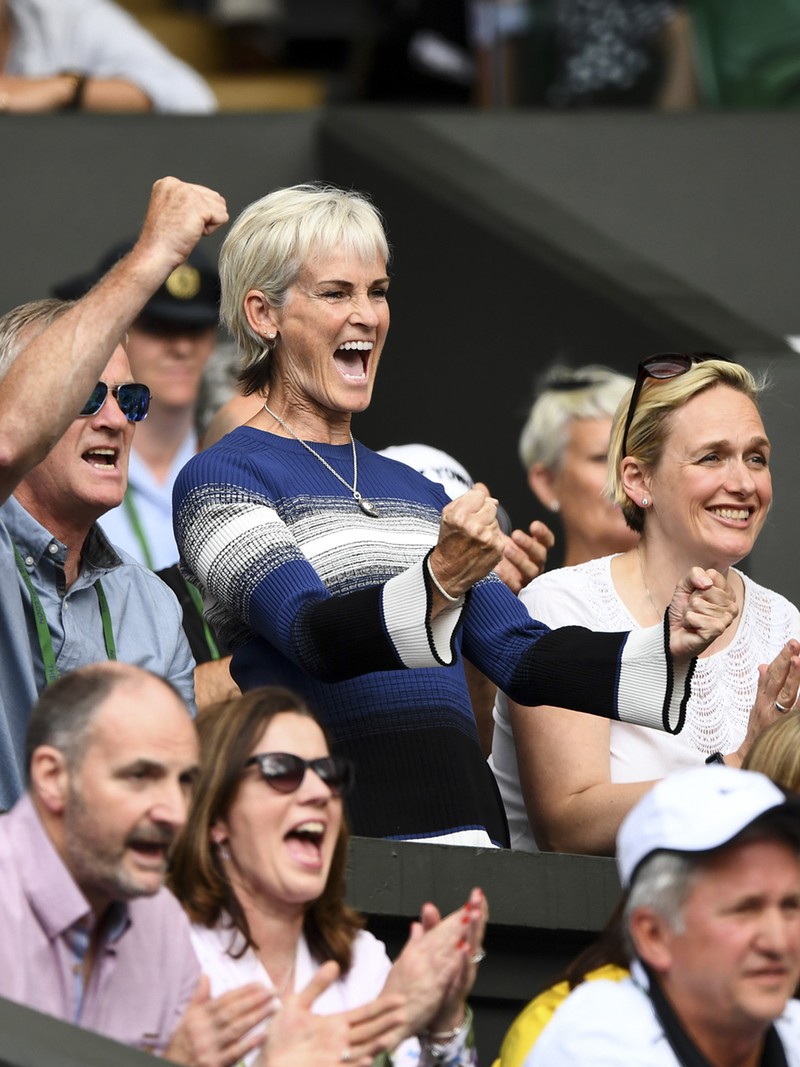
Judy Murray is taking part in the Slingsby Gin Golf Academy as one of four celebrity cadets whose journeys will be captured in a six-part series and shared on @SlingsbySocial, as well as being broadcast on Sky Sports. They will also be competing for a spot in the BMW PGA Championship Celebrity Pro-Am on Wednesday 7th September.
For more information visit SpiritOfHarrogate.co.uk.
DISCLAIMER: We endeavour to always credit the correct original source of every image we use. If you think a credit may be incorrect, please contact us at info@sheerluxe.com.

